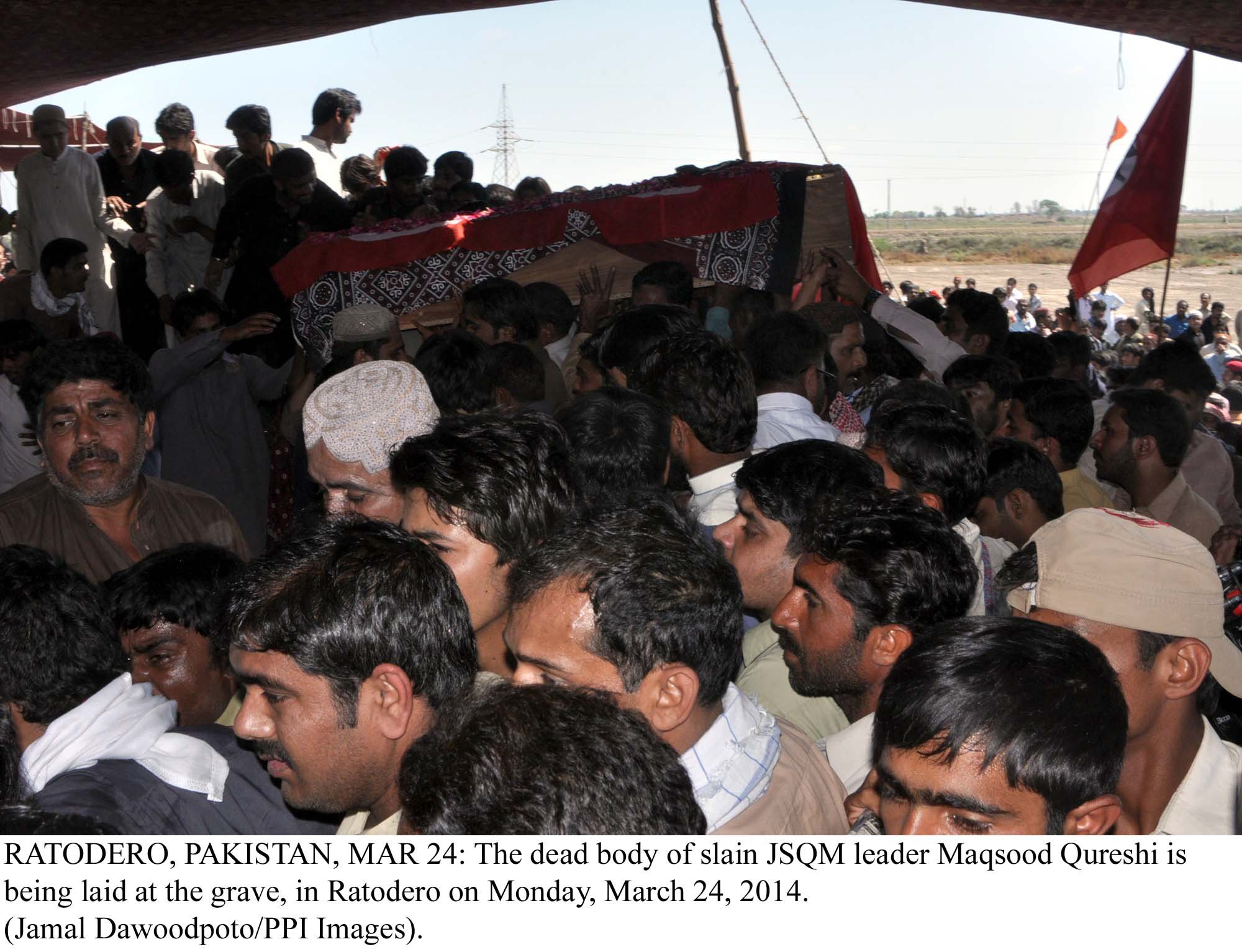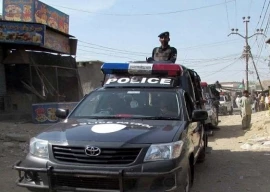
The country’s intelligence agencies are being blamed in some quarters for the extrajudicial killings and enforced disappearances of Sindhi nationalist workers. The most recent one, of Jeay Sindh Qaumi Mahaz (JSQM) leader Maqsood Qureshi, has triggered a renewed debate on the issue.
The Human Rights Commission of Pakistan (HRCP) organised a session titled ‘Human Rights and Political Assassinations’ on Saturday to highlight the consequences of such killings and disappearances.
Though most of the speakers pointed fingers at intelligence agencies for ruthlessly quelling separatist political movements, one of them questioned this theory, especially in reference with Qureshi’s murder.
“People can disagree with me but I don’t understand why the state would kill Maqsood? Did he really pose a serious threat to it, which some other groups or individuals do?” questioned Dr Naranjan Kumar, a PhD in conflict resolution.
Qureshi and another JSQM worker, Salman Wadho, were killed in Naushero Feroze on March 21, two days before the party was scheduled to stage its freedom march in Karachi. The two were shot dead and their bodies were burned along with the car in which they were travelling.
Dr Kumar said countries, even the most civilised and developed ones, resort to violence to crush violent movements that threaten their integration and geographical unity. “Such examples can be found in Sindh as well, when militant activity of Shafi Burfat’s group was crushed with violence. But the case of JSQM is different, because the party has been leading a peaceful political struggle and should not be treated as such.”
Without dwelling further on his point, he went on to emphasise the need of considering alternative perspectives to understand such incidents that leave a lasting impact on the masses and the course that they take for their political struggle.
The medico-legal officer who performed Qureshi’s autopsy, Dr Irshad Hussain, said that the post-mortem is the key to determining the motive of a murder. Giving his opinion on political murders, Hussain said emotional statements implicating political rivals are often given greater attention than the scientific evidence.
Prof. Imdad Chandio, who teaches International Relations at the Shah Abdul Lateef University in Khairpur, said that concern in Sindh is growing over these political murders and disappearances of nationalist workers. Prof. Chandio lamented that the killings of nationalist leaders and workers have failed to trigger a political reaction or social movement against those that are considered to be involved in the murders.
Published in The Express Tribune, April 13th, 2014.

1731329418-0/BeFunky-collage-(39)1731329418-0-165x106.webp)



1731737597-0/Untitled-design-(12)1731737597-0-270x192.webp)
1731746071-0/Untitled-design-(11)1731746071-0-270x192.webp)
1731749026-0/Copy-of-Untitled-(3)1731749026-0-270x192.webp)









COMMENTS
Comments are moderated and generally will be posted if they are on-topic and not abusive.
For more information, please see our Comments FAQ